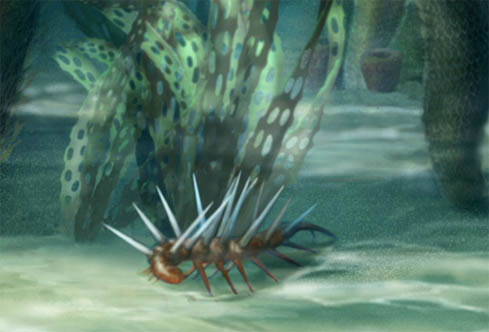My recent extended sojourn at what I called "the Ancestral Villa" on Facebook gave me the opportunity to dip in to my parents extensive and varied library. I read An Army at Dawn, the first volume of Rick Atkinson's Liberation Trilogy, covering the Allied invasion of North Africa. If anyone continues to think that WWII presented a simplistic, good-versus-evil story, complete with hagiography of "the Greatest Generation", this volume should disabuse them.
I also liberated a copy of Bruno Bettelheim's The Uses of Enchantment, an important volume in the Freudian reading of fairy tales.
Finally, there were two books by the late Stephen Jay Gould. One, Dinosaur in a Haystack, is a collection of his essays from Natural History magazine. The other is his marvelous Wonderful Life: The Burgess Shale and the Nature of History. Gould was a rarity. Like Carl Sagan and Stephen Hawking, he had a gift not only for writing about science for a general audience, but for doing so without sacrificing the rigor necessary to make complicated matters clear to the uninitiated. One need not know what an echinoderm is, or have forgotten the difference between phyla, class, and order from high school biology, yet still find rich rewards in Gould's work.
The revision of the fossilized remains of the Burgess Shale deposit in British Columbia is, Gould argues, the most important long-term paleontological work of the last third of the 20th century. At the heart of this revision not only of the creatures themselves - including the clarification of a far wider variety not only of species and genera, but entirely new and extinct phyla - lies the deduction that comes from the consideration of this early variety in multicellular life in the aftermath of what is known as the Cambrian explosion (the fossils in the Burgess Shale come a couple hundred million years after that initial burst of evolutionary leaping-forward). As Gould makes clear, the abundant evidence from the revision of the fossil record is that, rather than working within the strictures of modern taxonomic limitations, the Burgess remains represent an initial experimentation with variety that is stunning. Creatures such as hallucigenia, pictured at the top, have left no evolutionary legacy; they also are so distinct as to represent not just genera or order unrelated to modern forms, but entire phyla of creatures that, within a couple hundred million years, were wiped out in an extinction event that left only roughly seven percent of genera to carry on in the newly decimated world.
The meta-argument Gould proposes from the evidence is simple enough, and should be clear from the referent of the book's title: more than any other piece of evidence, the Burgess Shale fossils demonstrate the role of contingency in the history of evolution. Not only might the history of life have been radically different had different species survived the post-Cambrian extinction; almost without doubt there would have been little chance that large land animals including self-conscious primates, would have emerged. Despite our most desperate, parochial desire to see in the emergence of Homo sapiens the inexorable yet invisible hand of evolutionary progress at work, the facts tell a far different story. Things not only could have been different; if not for certain events that are, by definition unrepeatable, they very well might have been.
I can hear the creationists winding up their "Harrumphs" at such thoughts. I would suggest, however, that this new understanding of the role of historical contingency demonstrates more clearly than anything else the total irrelevance of the theory of biological evolution through natural selection for any theology that calls itself Christian. That evolution tells a very different story, rooted in very different assumptions, and flowing toward very different conclusion, has nothing whatsoever to do with the theological story of Creation. The latter concerns itself with the relationship between the world created by God - a world that we all recognize contains the contingent, that which is by definition unpredictable and therefore cannot be controlled or understood prior to its emergence - and the God who created it. Evolutionary theory, as partially reimagined by Gould through the lens of the Burgess Shale remains, tells a very different story that cannot, by definition, tell us anything other than what happened and, perhaps, how.
While it has been clear, to me at any rate, that biology and the Doctrine of Creation have nothing to do with one another, Gould's work in this book solidifies the irrelevance of the former for the latter. Of course, this won't stop the Creationists, who have far too much invested in their odd reading of the first two chapters of Genesis (more, indeed, than they seem to have invested in the central message of the Christian Scriptures, the Gospel of Jesus Christ's death and resurrection). All the same, it seems thoughtful Christians need no longer worry that there might yet be something in the theory of evolution that threatens our faith in the God who creates out of prodigal love. Evolution tells its tale, the Doctrine of Creation tells its story, and, really, in the end, the former is about us, while the latter, as all good theological stories should be, is about God.

